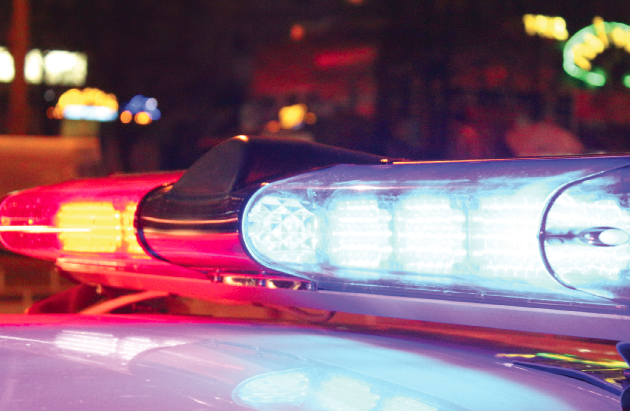By Christy Barritt
Traffic Stop Ends in Prayer
What began as a routine traffic stop in Gadsden, Alabama, turned into something much deeper. When Officer Samuel Lowe stopped a motorist for speeding, he asked his usual question to the driver: “Is there any reason you’re in a hurry?”
Driver Ronald Cowser explained to Lowe that he was concerned because his wife was sick at home, so Lowe told him he could proceed on. As Cowser was about to pull away, he asked Officer Lowe, “Can I pray for you?”
Cowser, a 58-year-old who’s retired from the Army, told a local news station that he tries to be obedient to what the Lord urges him to do. Lowe said he’d never turn down an offer for prayer. Cowser stepped out of the car, the men clasped hands, and Cowser began praying for Lowe, his safety, his family, and his needs.
The two men happen to be of different ethnicities. “You hear about the problems between white police officers and black Americans,” said Lowe to al.com. “Really, the only thing Mr. Cowser and I had in common was our faith in Jesus Christ, and He deserves all the praise and glory.” Both men believe their meeting was no accident.
Indiana Governor Signs Bill Allowing Religious Freedom
Indiana Governor Mike Pence signed into a law a new measure that allows state residents to practice religious freedom. The Religious Freedom Restoration Act allows individuals or organizations to cite religious beliefs as a defense when sued by a private party.
“Today I signed the Religious Freedom Restoration Act, because I support the freedom of religion for every Hoosier of every faith,” Pence said in a statement on April 2. “The Constitution of the United States and the Indiana Constitution both provide strong recognition of the freedom of religion, but today many people of faith feel their religious liberty is under attack by government action.”
Those opposed to the bill say it will legalize discrimination against lesbian, gay, bisexual, and transgender individuals.
Who Is Most Guilty of Texting While Driving?
Researchers from The University of Texas Health Science Center at Houston School of Public Health examined data collected over a two-year period to determine which group of people texted more while driving.
For the study students stood at various intersections and recorded their observations of drivers. Students took note of cell phone usage (either talking or texting), seat belt use, presence of passengers, and driver and vehicle characteristics.
Their findings showed that drivers under the age of 25 were more than four times more likely to use their cell phones while driving. They also found that women were 1.63 times more likely to use their phones compared with male motorists.
According to the Centers for Disease Control and Prevention, more than 9 people die and 1,153 are injured every day in car accidents involving a distracted driver.
Religious Skepticism in America
Barna Group released a new report about religious skepticism in the U.S.
For this report Barna combined atheists and agnostics into one group labeled skeptics. Skeptics represent one-quarter of all unchurched adults. Nearly one-third of skeptics (31 percent) said they have never attended a Christian church in their lives.
Barna also found five major shifts among skeptics, including the fact that they’re younger. Nearly 34 percent of skeptics today are under 30 years old. Twenty years ago, this age group represented only 18 percent. Skeptics are also more educated, more likely to be women, are growing in racial diversity, and are more dispersed regionally throughout the country.
Find the full report online (barna.org).
Christy Barritt is an award-winning author in Chesapeake, Virginia. She and her husband, Scott, have two sons (christybarritt.com).



Comments: no replies